#NNPA BlackPress
Senator Doug Jones Emphasizes the Importance of the 2020 Black Voter Turnout In Exclusive Fireside Chat with NNPA President Dr. Benjamin F. Chavis Jr.
NNPA NEWSWIRE — Jones said voting rights had been under attack since the 2013 Shelby V. Holder decision, which eliminated a lot of voter protections. “It’s not the same as the old Jim Crow laws, but there’s still efforts out there to suppress votes and keep people from having that free access to the booths,” he stated. Jones noted that he’s working to restore “teeth” in the Voting Rights Act, but doubts that the current GOP-led Senate and President Trump’s administration would approve. “I don’t see it happening, so it’s all the more important to get out and vote in the 2020 elections.”
By Stacy M. Brown, NNPA Newswire Senior Correspondent
@StacyBrownMedia
The importance of Black voter turnout, the Reauthorization of the Voting Rights Act, bipartisan politics, the Futures Act and environmental justice, counted among the topics candidly tackled during a historic fireside chat between National Newspaper Publishers Association (NNPA) President and CEO Dr. Benjamin F. Chavis, Jr., and Alabama’s Senator Doug Jones, a Democrat.
Held inside the Hart Building at the U.S. Capitol in Washington, D.C., the engaging hour-long conversation marked the first time that a sitting U.S. Senator sat down for a live-streamed video with the Black Press of America.
During the discussion, Jones said that voter turnout – particularly that of African Americans – was crucial to his stunning upset of Republican Roy Moore in the 2017 Alabama Special Election.
“The right to vote was hard fought for African Americans in this country, and I think too many people take that for granted. I think we proved that in the special election in 2017, that every vote counts,” said Jones.
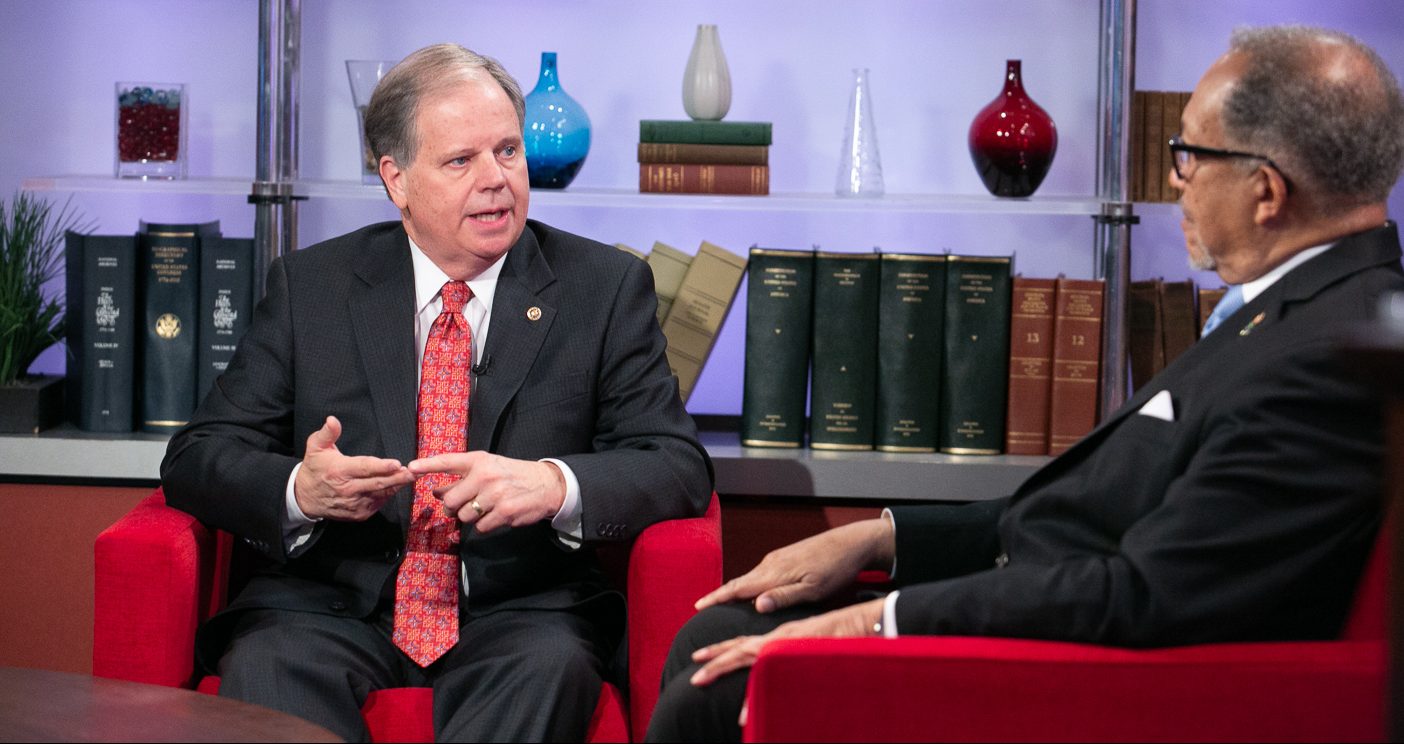
Jones said voting rights had been under attack since the 2013 Shelby V. Holder decision, which eliminated a lot of voter protections.
“It’s not the same as the old Jim Crow laws, but there’s still efforts out there to suppress votes and keep people from having that free access to the booths,” he stated.
Jones noted that he’s working to restore “teeth” in the Voting Rights Act, but doubts that the current GOP-led Senate and President Trump’s administration would approve.
“I don’t see it happening, so it’s all the more important to get out and vote in the 2020 elections,” Jones stated.
Chavis asked Jones about the role Black women played in his winning election to the Senate.
“It was critical. We focused on making sure that we got the African American vote out,” Jones stated.
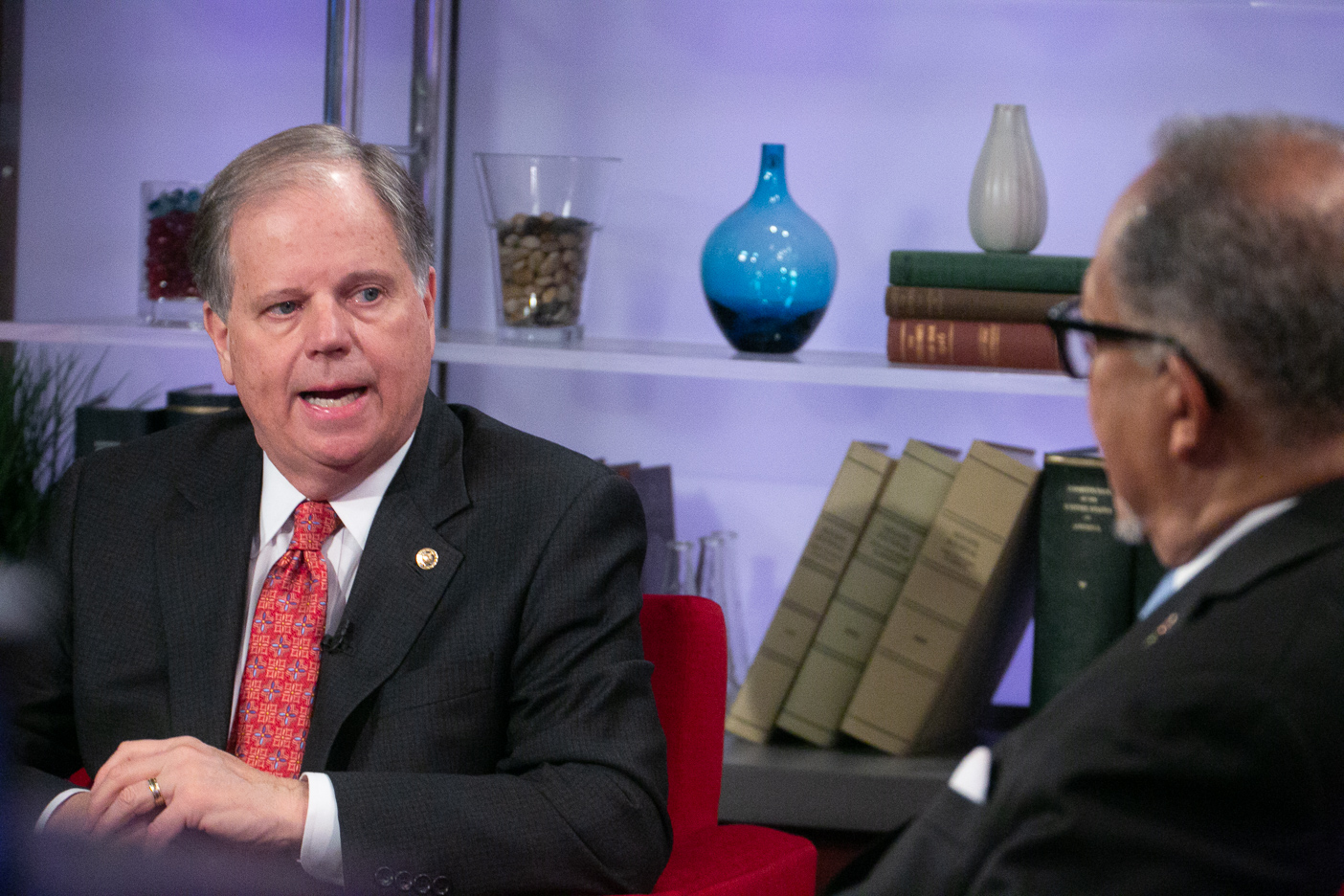
“We did get more African Americans as a percentage out than even when President Obama did in his first race, a fact that I was very proud. The Black community came out and worked hard. It’s community engagement; it’s a 365-days a year job. And, that’s why the Black Press is so important because it keeps the community engaged,” he stated.
Late last year, Trump signed the Futures Act, a bipartisan measure that would put more funding into Historically Black Colleges and Universities (HBCUs) and other minority-serving institutions.
“It was incredibly important. When it comes to federal dollars, there are two pots of money HBCUs get: Mandatory funding and discretionary funding,” said Jones.
“The mandatory funding is absolutely critical so they can plan each year. There’s a lot of budgetary tugs that fought us, it wasn’t easy, but we were just persistent, and that’s the key in legislation in Washington, to be persistent,” he noted.
Jones continued:
“So we were able to get that mandatory funding so that a base amount of money would go to HBCUs. In my two years in Washington, we have been able to get about a 30 percent increase in discretionary funding for HBCUs and other minority-serving institutions.
“Providing that base is important to them and the economy of states like Alabama and North Carolina, and others.”
Chavis spoke to Jones about race relations and asked about the senator’s forecast for the South and whether he sees a more inclusive and diverse South rising.
“So many of the divisions we see in the country started in the South. It can also be a place of healing and bringing people back together, and I see tremendous opportunity in the South,” Jones stated.
“I think my election was something that people looked at and said the South was changing. The demographics are changing to some extent, but I think people’s hearts and minds are changing,” he added.
“We went from a one-party state in Alabama with Democrats, to a one-party state with Republicans. There was never anything in between. When you get competitive political parties, you get people who have to talk to each other, and that’s what you need.
“These young people coming up don’t have the same kind of biases and prejudices you saw when I was growing up. They also are beginning to see that the state is better off when everybody in that state benefits from it. I think the South can lead the nation in healing.”
Jones also spoke of the importance of closing the achievement gap, although he said it’s a complicated issue.
He said education and getting broadband into rural communities are keys to helping close the gap.
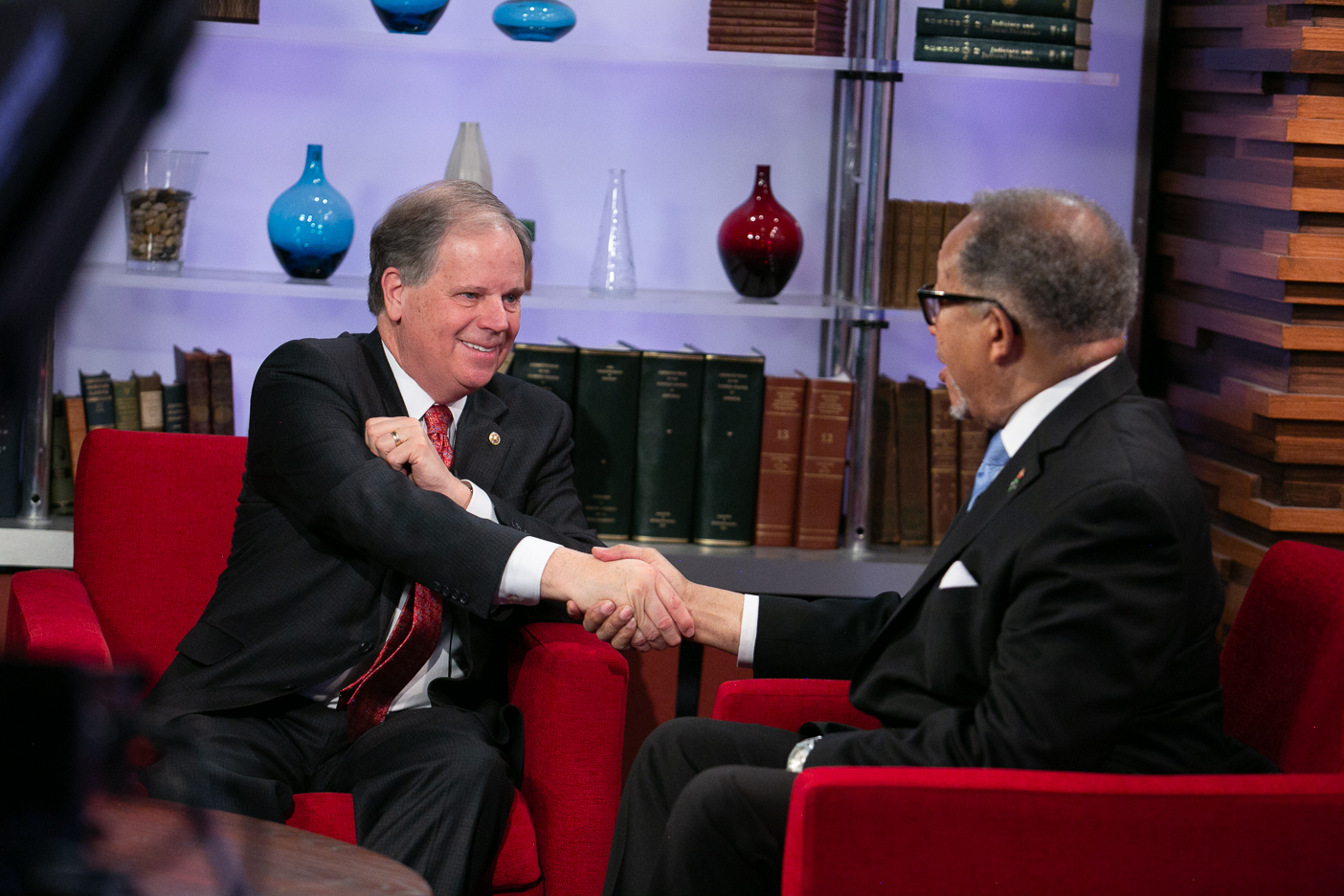
The senator also noted that he’s a proponent of raising the federal minimum wage, but conceded it couldn’t be done overnight. He stated that Trump’s 2017 tax cuts have helped to provide businesses with the needed resources to make a minimum wage hike possible.
With climate change a serious and growing issue, Jones stated the importance of the Black Press to continue to cover topics of environmental justice.
“A lot of work needs to be done,” he stated.
“But, I don’t have much confidence in the Environmental Protection Agency under this administration, which is why the 2020 election is very important.”
He included farming and Trump’s trade and tariff wars as other vital issues for the 2020 election cycle.
Jones concluded the chat by noting the critical role of the Black Press, his disappointment in mainstream media, and his message to veterans in the wake of the new conflict with Iran.
“I think the press, in general, is critical. Overall, I’m a little disappointed in mainstream media, and I think the Black Press has a unique role, so the Black Press must stay focused on the issues,” Jones stated.
He noted his appreciation for the U.S. military.
“I’m going to do everything that I can to continue to show appreciation. We eliminated the military widow’s tax … we’ve got to demonstrate our commitment in more words … we’ve got to put our words into action,” Jones stated.
#NNPA BlackPress
Fighting to Keep Blackness
BlackPressUSA NEWSWIRE — Trump supporters have introduced another bill to take down the bright yellow letters of Black Lives Matter Plaza in Washington, D.C., in exchange for the name Liberty Plaza. D.C.
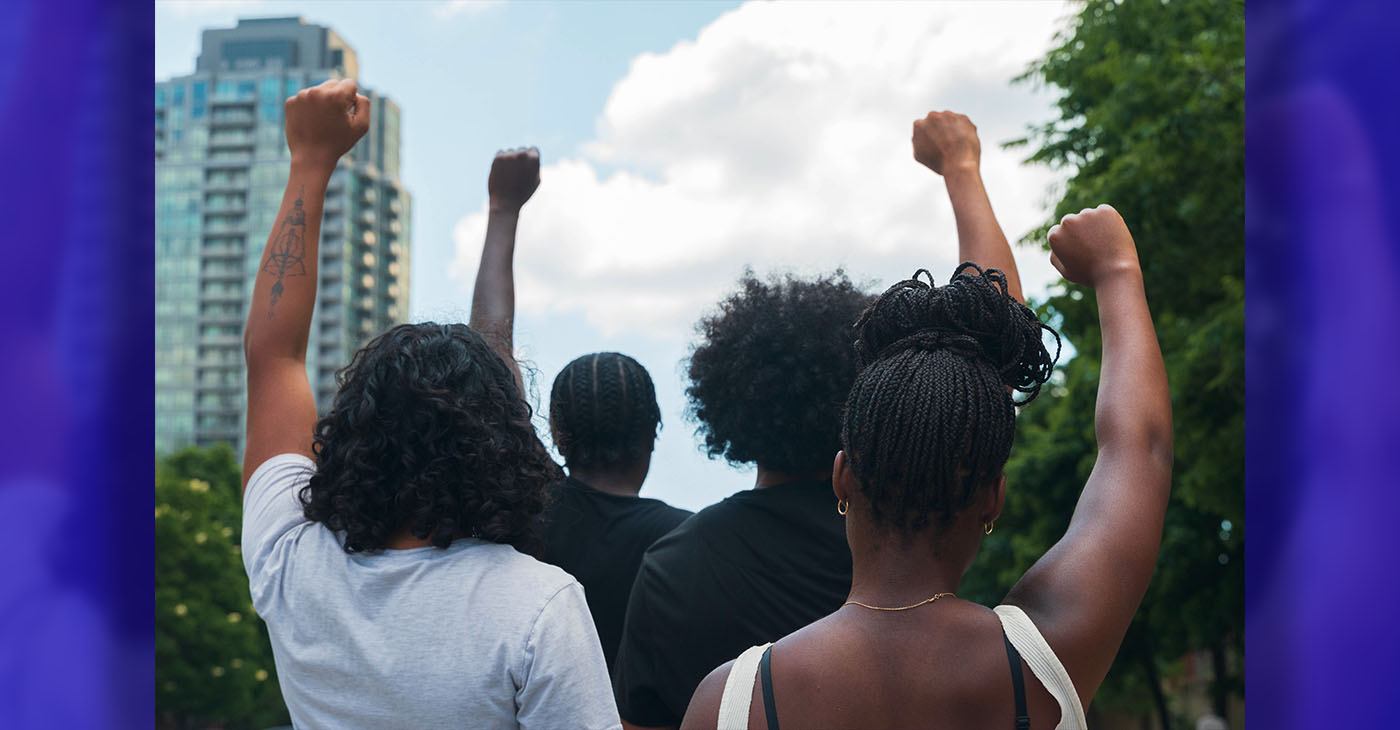
By April Ryan
As this nation observes the 60th anniversary of Bloody Sunday in Selma, Alabama, the words of President Trump reverberate. “This country will be WOKE no longer”, an emboldened Trump offered during his speech to a joint session of Congress Tuesday night. Since then, Alabama Congresswoman Terri Sewell posted on the social media platform formerly known as Twitter this morning that “Elon Musk and his DOGE bros have ordered GSA to sell off the site of the historic Freedom Riders Museum in Montgomery.” Her post of little words went on to say, “This is outrageous and we will not let it stand! I am demanding an immediate reversal. Our civil rights history is not for sale!” DOGE trying to sell Freedom Rider Museum
Also, in the news today, the Associated Press is reporting they have a file of names and descriptions of more than 26,000 military images flagged for removal because of connections to women, minorities, culture, or DEI. In more attempts to downplay Blackness, a word that is interchanged with woke, Trump supporters have introduced another bill to take down the bright yellow letters of Black Lives Matter Plaza in Washington, D.C., in exchange for the name Liberty Plaza. D.C. Mayor Morial Bowser is allowing the name change to keep millions of federal dollars flowing there. Black Lives Matter Plaza was named in 2020 after a tense exchange between President Trump and George Floyd protesters in front of the White House. There are more reports about cuts to equity initiatives that impact HBCU students. Programs that recruited top HBCU students into the military and the pipeline for Department of Defense contracts have been canceled.
Meanwhile, Democrats are pushing back against this second-term Trump administration’s anti-DEI and Anti-woke message. In the wake of the 60th anniversary of Bloody Sunday in Selma, several Congressional Black Caucus leaders are reintroducing the Voting Rights Act. South Carolina Democratic Congressman James Clyburn and Alabama Congresswoman Terry Sewell are sponsoring H.R. 14, the John Lewis Voting Rights Advancement Act. Six decades ago, Lewis was hit with a billy club by police as he marched for the right to vote for African Americans. The right for Black people to vote became law with the 1965 Voting Rights Act that has since been gutted, leaving the nation to vote without the full protections of the Voting Rights Act. Reflecting on the late Congressman Lewis, March 1, 2020, a few months before his death, Lewis said, “We need more than ever in these times many more someones to make good trouble- to make their own dent in the wall of injustice.”
#NNPA BlackPress
Rep. Al Green is Censured by The U.S. House After Protesting Trump on Medicaid
BLACKPRESSUSA NEWSWIRE — His censure featured no hearing at the House Ethics Committee and his punishment was put on the floor for a vote by the Republican controlled House less than 72 hours after the infraction in question.
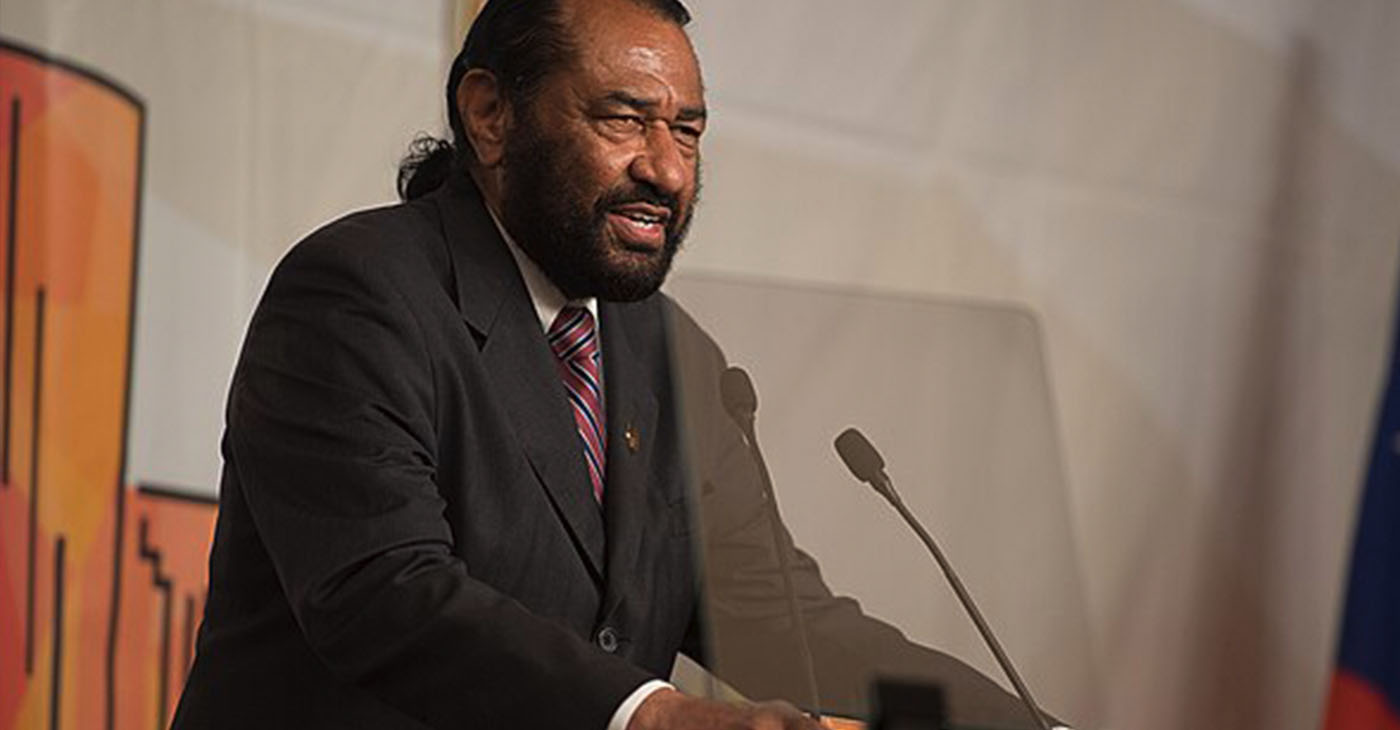
By Lauren Burke
In one of the quickest punishments of a member of the U.S. House of Representatives in the modern era, Congressman Al Green (D-TX) was censured by a 224-198 vote today in the House. His censure featured no hearing at the House Ethics Committee and his punishment was put on the floor for a vote by the Republican controlled House less than 72 hours after the infraction in question. Of the last three censures of members of the U.S. House, two have been members of the Congressional Black Caucus under GOP control. In 2023, Rep. Jamal Bowman was censured.
On the night of March 4, as President Trump delivered a Joint Address to Congress, Rep. Green interrupted him twice. Rep. Green shouted, “You don’t have a mandate to cut Medicare, and you need to raise the cap on social security,” to President Trump. In another rare event, Rep. Green was escorted off the House floor by security shortly after yelling at the President by order of GOP House Speaker Mike Johnson. Over the last four years, members of Congress have yelled at President Biden during the State of the Union. Georgia Republican Marjorie Taylor-Greene was joined by Republican Rep. Lauren Bobert (R-CO) in 2022 in yelling at President Biden. In 2023, Rep. Greene, Rep. Bob Good (R-VA), and Rep. Lisa McClain (R-MI) yelled at Biden, interrupting his speech. In 2024, wearing a red MAGA hat, a violation of the rules of the U.S. House, Greene interrupted Biden again. She was never censured for her behavior. Rep. Green voted “present” on his censure and was joined by freshman Democrat Congressman Shomari Figures of Alabama who also voted “present”.
All other members of the Congressional Black Caucus voted against censuring Green. Republicans hold a four-seat advantage in the U.S. House after the death of Texas Democrat and former Houston Mayor Sylvester Turner yesterday. Ten Democrats voted along with Republicans to censure Rep. Green, including Rep. Jim Himes of Connecticut, who is in the leadership as the senior Democrat on the House Intelligence Committee. “I respect them but, I would do it again,” and “it is a matter of conscience,” Rep. Green told Black Press USA’s April Ryan in an exclusive interview on March 5. After the vote, a group of Democrats sang “We Shall Overcome” in the well at the front of the House chamber. Several Republican members attempted to shout down the singing. House Speaker Mike Johnson gaveled the House out of session and into a recess. During the brief recess members moved back to their seats and out of the well of the House. Shortly after the vote to censor Rep. Green, Republican Congressman Andy Ogles of Tennessee quickly filed legislation to punish members who participated in the singing of “We Shall Overcome.” Earlier this year, Rep. Ogles filed legislation to allow President Donald Trump to serve a third term, which is currently unconstitutional. As the debate started, the stock market dove down over one-point hours from close. The jobs report will be made public tomorrow.
#NNPA BlackPress
Trump Moves to Dismantle Education Department
BLACKPRESSUSA NEWSWIRE — The department oversees programs under the Individuals with Disabilities Education Act (IDEA), serving 7.5 million students. Transferring IDEA oversight to another agency, as Trump’s plan suggests, could jeopardize services and protections for disabled students.
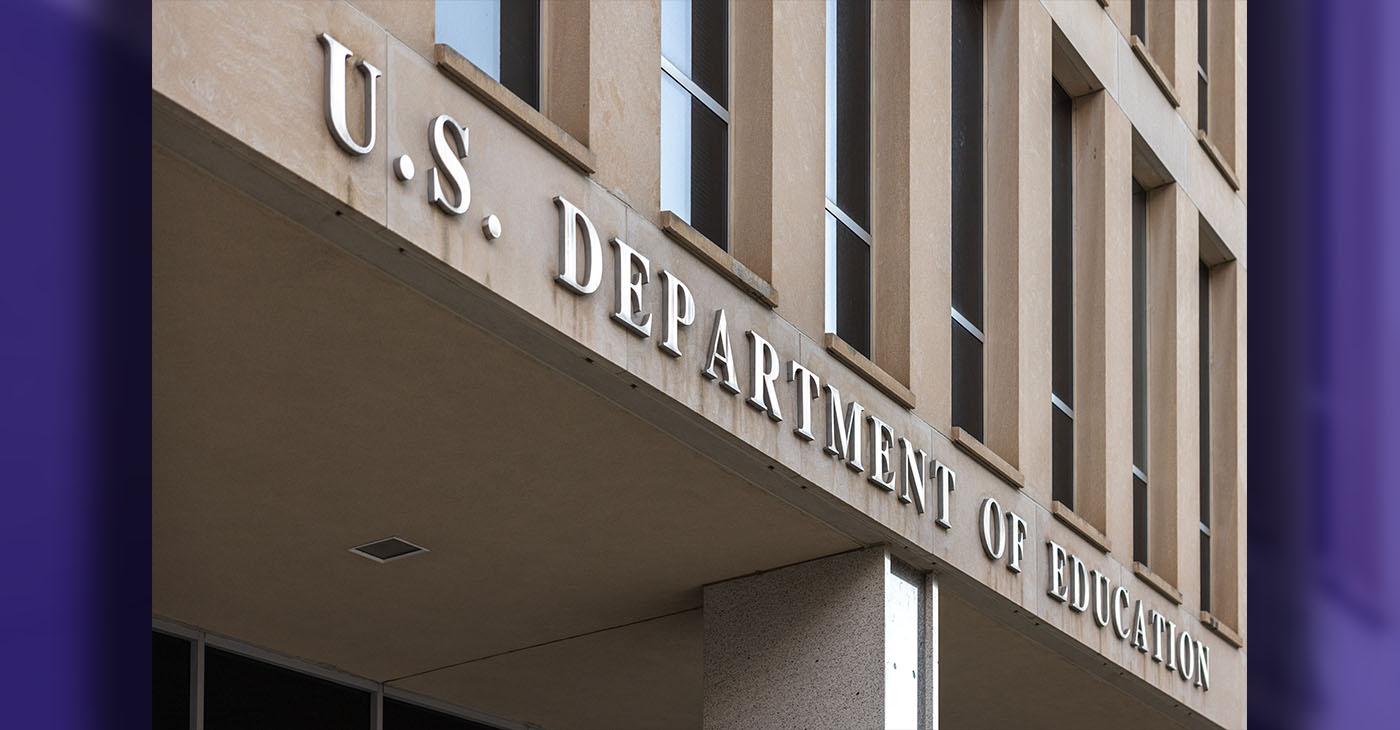
By Stacy M. Brown
BlackPressUSA.com Senior National Correspondent
@StacyBrownMedia
The Trump administration is preparing to issue an executive order directing newly confirmed Education Secretary Linda McMahon to begin dismantling the Department of Education. While the president lacks the authority to unilaterally shut down the agency—requiring congressional approval—McMahon has been tasked with taking “all necessary steps” to reduce its role “to the maximum extent permitted by law.” The administration justifies the move by claiming the department has spent over $1 trillion since its 1979 founding without improving student achievement. However, data from The Nation’s Report Card shows math scores have improved significantly since the 1990s, though reading levels have remained stagnant. The pandemic further widened achievement gaps, leaving many students behind.
The Education Department provides about 10% of public-school funding, primarily targeting low-income students, rural districts, and children with disabilities. A recent Data for Progress poll found that 61% of voters oppose Trump’s efforts to abolish the agency, while just 34% support it. In Washington, D.C., where student proficiency rates remain low—22% in math and 34% in English—federal funding is crucial. Serenity Brooker, an elementary education major, warned that cutting the department would worsen conditions in underfunded schools.
“D.C. testing scores aren’t very high right now, so cutting the Department of Education isn’t going to help that at all,” she told Hilltop News. A report from the Education Trust found that low-income schools in D.C. receive $2,200 less per student than wealthier districts, leading to shortages in essential classroom materials. The department oversees programs under the Individuals with Disabilities Education Act (IDEA), serving 7.5 million students. Transferring IDEA oversight to another agency, as Trump’s plan suggests, could jeopardize services and protections for disabled students.
The Office for Civil Rights also plays a key role in enforcing laws that protect students from discrimination. Moving it to the Department of Justice, as proposed in Project 2025, would make it harder for families to file complaints, leaving vulnerable students with fewer protections. Federal student aid programs, including Pell Grants and loan repayment plans, could face disruption if the department is dismantled. Experts warn this could worsen the student debt crisis, pushing more borrowers into default. “With funding cuts, they don’t have the materials they need, like books or things to help with math,” Brooker said. “It makes learning less fun for them.”
-

 #NNPA BlackPress2 weeks ago
#NNPA BlackPress2 weeks agoTarget Takes a Hit: $12.4 Billion Wiped Out as Boycotts Grow
-

 Activism4 weeks ago
Activism4 weeks agoU.S. House Minority Leader Hakeem Jeffries and Rep. Lateefah Simon to Speak at Elihu Harris Lecture Series
-

 Activism4 weeks ago
Activism4 weeks agoActor, Philanthropist Blair Underwood Visits Bay Area, Kicks Off Literacy Program in ‘New Oakland’ Initiative
-

 Alameda County4 weeks ago
Alameda County4 weeks agoAfter Years of Working Remotely, Oakland Requires All City Employees to Return to Office by April 7
-

 Activism4 weeks ago
Activism4 weeks agoLawsuit Accuses UC Schools of Giving Preference to Black and Hispanic Students
-

 Alameda County4 weeks ago
Alameda County4 weeks agoLee Releases Strong Statement on Integrity and Ethics in Government
-

 Activism4 weeks ago
Activism4 weeks agoRetired Bay Area Journalist Finds Success in Paris with Black History Tours
-

 Activism2 weeks ago
Activism2 weeks agoUndocumented Workers Are Struggling to Feed Themselves. Slashed Budgets and New Immigration Policies Bring Fresh Challenges




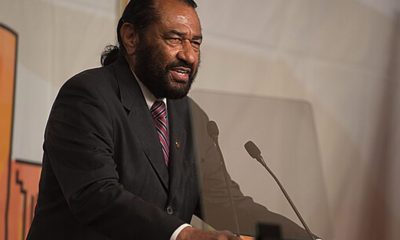







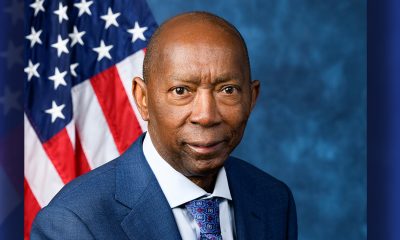

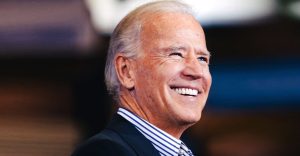



































Pingback: Panafricanmedia Networks